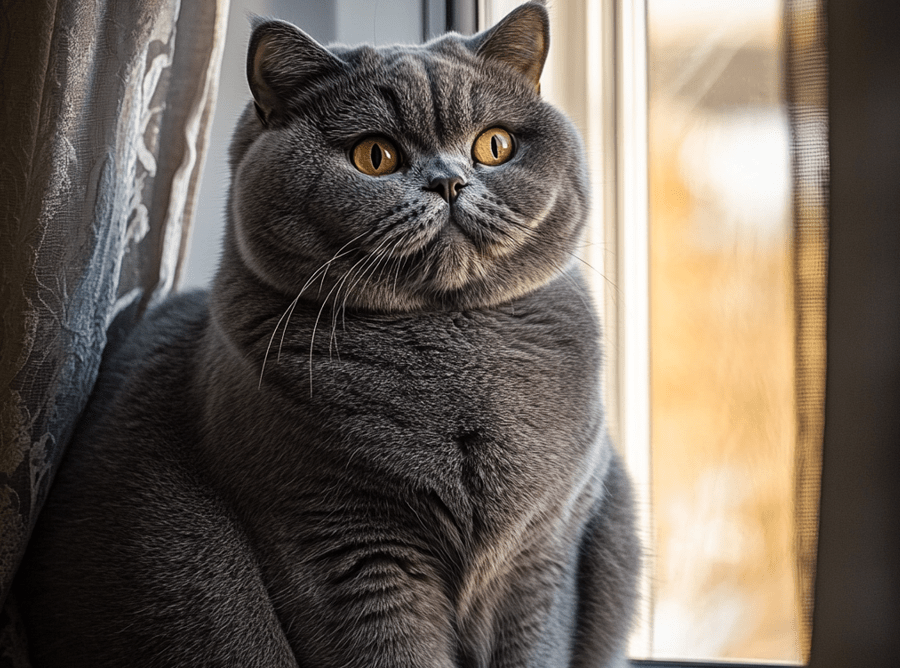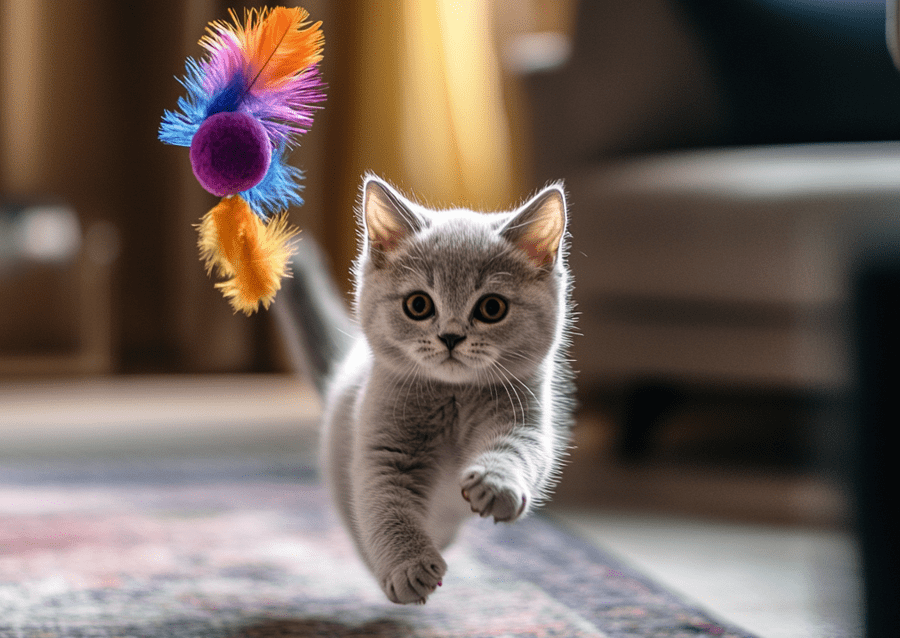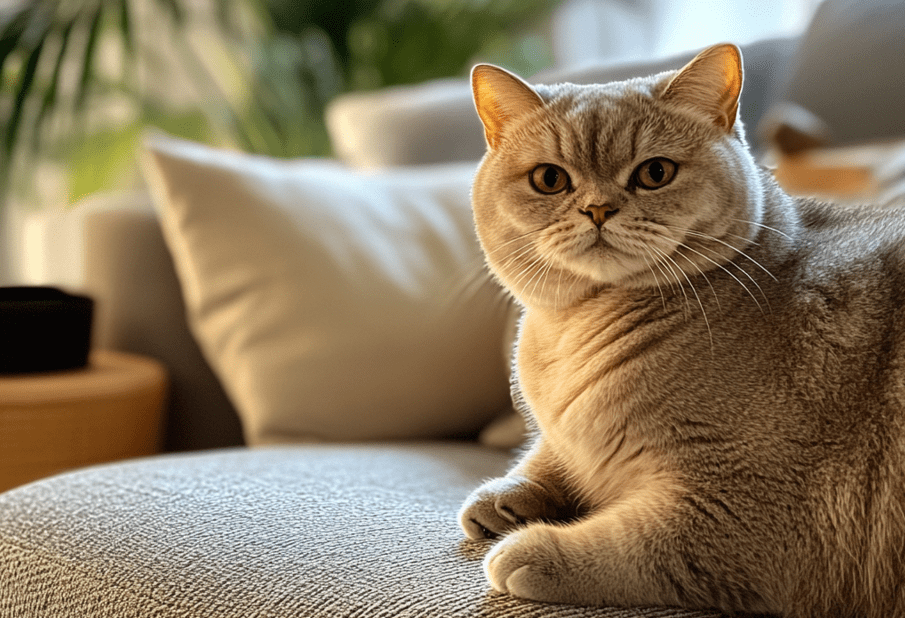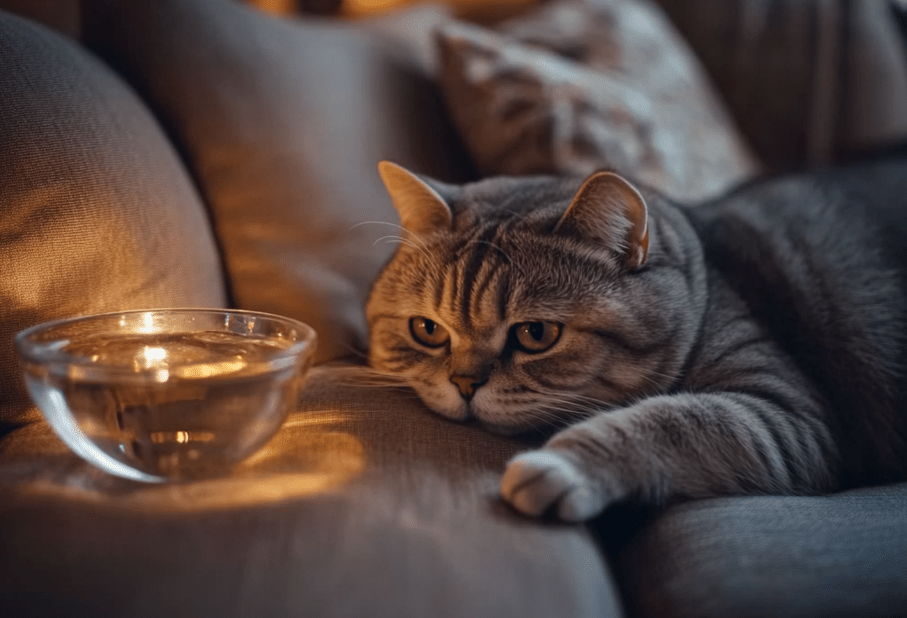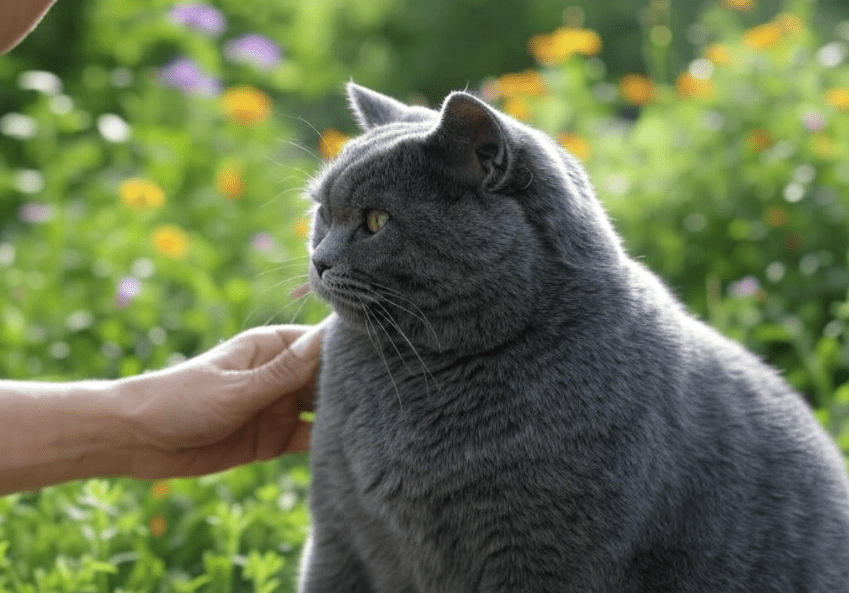
British Shorthairs are beloved for their plush coats, round faces, and calm demeanors, but their sturdy builds can make them prone to weight gain. To prevent obesity in British Shorthairs, choosing the right diet is critical. Obesity in cats can lead to serious health issues like diabetes, joint problems, and a shortened lifespan. This comprehensive guide will help you select a diet that keeps your British Shorthair healthy, active, and at an ideal weight. We’ll cover nutritional needs, portion control, feeding strategies, and lifestyle tips to ensure your cat thrives.
Why Obesity Is a Concern for British Shorthairs
British Shorthairs have a naturally stocky, muscular build, which can sometimes mask excess fat. Their laid-back personalities and love for lounging make them less active than other breeds, increasing the risk of obesity. According to veterinary studies, over 50% of cats in developed countries are overweight, and British Shorthairs are particularly susceptible due to their genetics and lifestyle.
Obesity can cause:
Diabetes mellitus: Excess weight increases insulin resistance.
Joint issues: Extra pounds strain joints, leading to arthritis.
Heart disease: Obesity puts stress on the cardiovascular system.
Reduced lifespan: Overweight cats may live shorter lives.
To prevent obesity in British Shorthairs, a tailored diet and proactive care are essential. Let’s explore how to choose the best diet for your cat.
Understanding the Nutritional Needs of British Shorthairs
Cats are obligate carnivores, meaning their diet must be rich in animal-based proteins and fats with minimal carbohydrates. British Shorthairs, in particular, benefit from a diet that supports their muscle mass while preventing excess fat accumulation. Here’s what to prioritize:
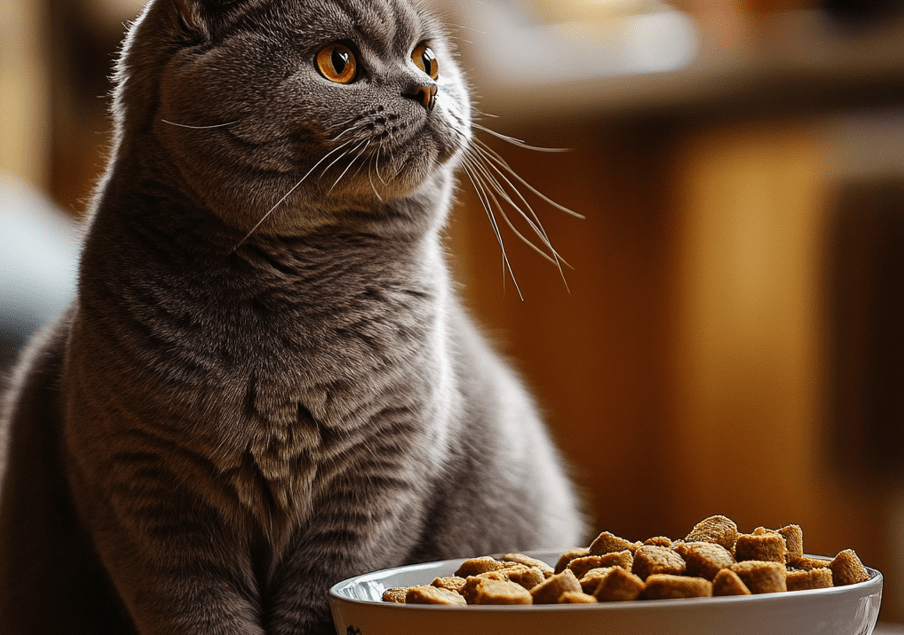
1. High-Quality Protein
Protein is the cornerstone of a cat’s diet. Look for foods where the primary ingredients are real meat, poultry, or fish (e.g., chicken, turkey, salmon). Avoid fillers like corn, wheat, or soy, which provide empty calories and can contribute to weight gain.
Why it matters: Protein supports muscle maintenance, which is crucial for British Shorthairs’ sturdy frames.
Tip: Check the ingredient list. The first ingredient should always be a named meat source, not a byproduct or grain.
2. Moderate Fat Content
Fats provide energy and support coat health, but too much fat can lead to weight gain. Choose a diet with moderate fat levels (around 15-20% on a dry matter basis) to keep your British Shorthair satisfied without overloading calories.
Why it matters: Excess fat in the diet can quickly tip the scales, especially for less active cats.
Tip: Wet food often has a better protein-to-fat ratio than dry kibble, making it a good choice for weight management.
3. Low Carbohydrates
Cats have a limited ability to process carbohydrates. Diets high in carbs (common in low-quality dry foods) can lead to fat storage and obesity. Opt for low-carb formulas or wet foods with minimal plant-based ingredients.
Why it matters: Low-carb diets mimic a cat’s natural prey-based diet, promoting healthy weight.
Tip: Look for grain-free or low-grain options, but ensure the food is balanced with essential nutrients.
4. Essential Nutrients
British Shorthairs need specific nutrients like taurine (for heart and eye health), omega-3 fatty acids (for skin and coat), and vitamins A and D. A balanced diet ensures these are present in appropriate amounts.
Why it matters: Nutrient deficiencies can lead to health issues, while excesses can contribute to weight gain.
Tip: Choose foods labeled as “complete and balanced” by AAFCO (Association of American Feed Control Officials).
Types of Cat Food for Weight Management
To prevent obesity in British Shorthairs, you can choose from several types of cat food, each with its pros and cons. Here’s a breakdown:
1. Wet Food (Canned or Pouch)
Wet food is often the best choice for British Shorthairs due to its high moisture content, high protein, and low carbohydrate levels. It mimics a cat’s natural diet and helps with hydration, which supports urinary health.
-
Pros:
-
Lower in calories per volume, making it easier to control portions.
-
High moisture content reduces the risk of urinary issues.
-
Palatable, encouraging picky eaters to consume adequate protein.
-
-
Cons:
-
More expensive than dry food.
-
Requires refrigeration after opening.
-
-
Best for: Cats prone to weight gain or those with urinary concerns.
2. Dry Food (Kibble)
Dry food is convenient and cost-effective but often contains higher levels of carbohydrates and fillers. If choosing kibble, opt for a high-protein, low-carb formula designed for weight control.
-
Pros:
-
Long shelf life and easy to store.
-
Can help maintain dental health by reducing tartar buildup.
-
-
Cons:
-
Higher calorie density, making overfeeding easy.
-
Lower moisture content, requiring ample water intake.
-
-
Best for: Cats with good portion control and no urinary issues.
3. Raw or Home-Cooked Diets
Raw or home-cooked diets can be tailored to a British Shorthair’s needs but require careful planning to ensure nutritional balance. These diets are high in protein and low in carbs, ideal for weight management.
-
Pros:
-
Complete control over ingredients.
-
Mimics a cat’s natural diet.
-
-
Cons:
-
Risk of bacterial contamination (raw diets).
-
Time-consuming and requires nutritional expertise.
-
-
Best for: Owners willing to consult a veterinary nutritionist.
4. Prescription Weight-Loss Diets
Veterinary diets formulated for weight loss are available for cats with obesity or a strong predisposition to weight gain. These foods are low in calories but high in fiber and protein to keep cats full.
-
Pros:
-
Scientifically designed for weight control.
-
Often includes added nutrients for joint or urinary health.
-
-
Cons:
-
Requires a veterinary prescription.
-
Can be expensive.
-
-
Best for: Cats already overweight or with medical conditions.
How to Choose the Right Diet for Your British Shorthair
Selecting the best diet to prevent obesity in British Shorthairs involves considering your cat’s age, activity level, and health status. Follow these steps:
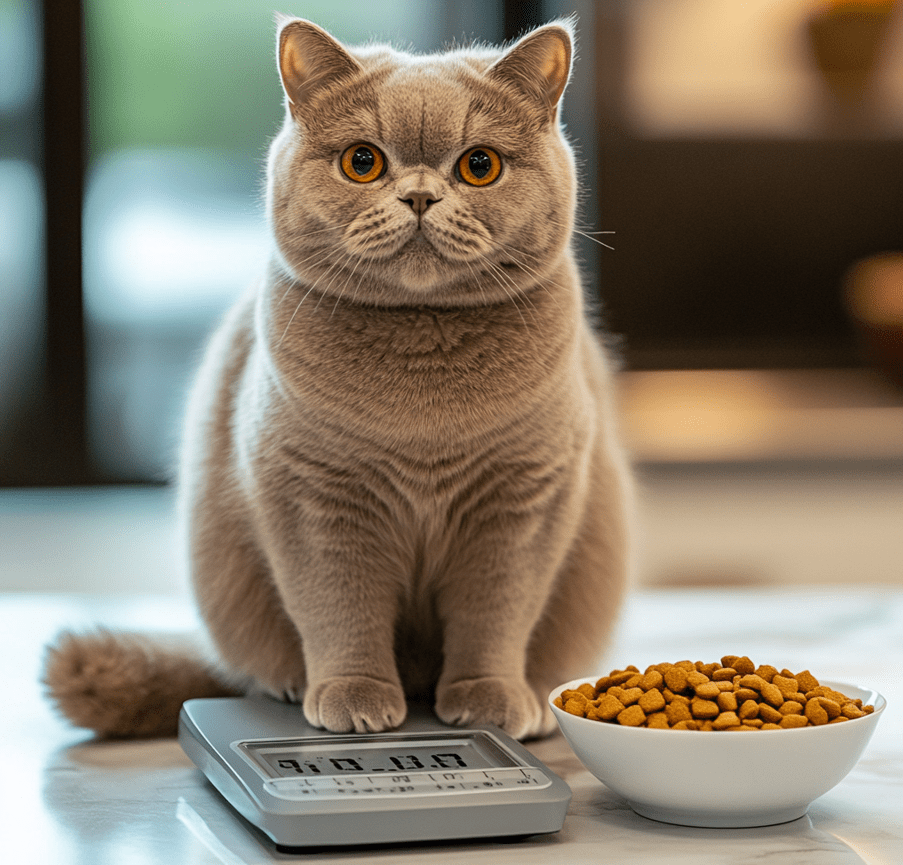
1. Consult Your Veterinarian
Before changing your cat’s diet, consult a veterinarian to assess their current weight, body condition score (BCS), and health needs. A BCS of 4-5 (on a 9-point scale) is ideal, where you can feel the ribs with slight fat cover and see a waistline from above.
Why it matters: A vet can recommend a diet tailored to your cat’s specific needs, especially if they have medical conditions like diabetes or arthritis.
2. Read Labels Carefully
Look for foods with:
1.Named meat sources as the first ingredient.
2.Minimal fillers (e.g., corn, wheat, soy).
3.AAFCO statement ensuring nutritional adequacy.
4.Calorie content listed (to calculate portions).
3. Consider Your Cat’s Preferences
British Shorthairs can be picky eaters. Introduce new foods gradually over 7-10 days to avoid digestive upset. Mix small amounts of the new food with the old, increasing the proportion daily.
4. Monitor Calorie Intake
British Shorthairs typically need 20-25 calories per pound of ideal body weight daily to maintain a healthy weight. For example, a 10-pound cat needs 200-250 calories per day. Check food packaging for calorie content and measure portions precisely.
Tip: Use a digital kitchen scale for accuracy, as measuring cups can be inconsistent.
5. Adjust for Life Stage
Kittens: Need calorie-dense, high-protein food for growth but should not be overfed.
Adults: Require maintenance diets to prevent weight gain.
Seniors: May need lower-calorie diets due to reduced activity, plus joint-supporting nutrients.
Feeding Strategies to Prevent Obesity
Diet alone isn’t enough—how you feed your British Shorthair matters. Implement these strategies to keep your cat at a healthy weight:
1. Portion Control
Overfeeding is a leading cause of obesity. Divide your cat’s daily calorie allowance into 2-3 meals to prevent overeating and stabilize blood sugar.
Tip: Avoid free-feeding (leaving food out all day), as British Shorthairs may graze excessively.
2. Use Puzzle Feeders
Puzzle feeders or slow-feed bowls encourage mental stimulation and slow eating, reducing the risk of overconsumption.
Why it works: British Shorthairs enjoy problem-solving, and puzzle feeders mimic hunting behavior.
3. Provide Fresh Water
Ensure your cat has constant access to clean water, especially if feeding dry food. Adequate hydration supports metabolism and urinary health.
Tip: Use a pet water fountain to encourage drinking, as British Shorthairs often prefer running water.
4. Schedule Regular Weigh-Ins
Weigh your cat monthly to monitor for weight gain. A sudden increase may indicate overfeeding or a medical issue.
Tip: Use a digital pet scale or weigh yourself holding your cat, then subtract your weight.
5. Incorporate Exercise
While diet is key, exercise helps burn calories and maintain muscle. Engage your British Shorthair with interactive toys like feather wands, laser pointers, or cat tunnels.
Tip: Aim for 10-15 minutes of play twice daily. Rotate toys to keep your cat interested.
Common Mistakes to Avoid
To prevent obesity in British Shorthairs, steer clear of these pitfalls:
Feeding human food: Table scraps are often high in fat and calories.
Ignoring treats: Treats should account for no more than 10% of daily calories.
Not adjusting portions: As your cat ages or loses weight, their calorie needs change.
Assuming all foods are equal: Low-quality foods may lead to overeating due to poor satiety.
Supplements and Additional Considerations
In some cases, supplements can support weight management:
L-carnitine: May aid fat metabolism (consult a vet).
Omega-3 fatty acids: Reduce inflammation and support coat health.
Probiotics: Promote gut health, which can influence weight.
Always consult a veterinarian before adding supplements, as excess can be harmful.
Lifestyle Tips for a Healthy British Shorthair
Beyond diet, your cat’s environment and routine play a role in preventing obesity:
Create a stimulating environment: Provide scratching posts, perches, and window views to encourage movement.
Manage stress: Stress can lead to overeating. Ensure a calm, predictable routine.
Spay/neuter considerations: Neutered cats have lower calorie needs, so adjust portions accordingly.
When to Seek Veterinary Help
If your British Shorthair is already overweight or struggles to lose weight despite dietary changes, consult a veterinarian. They may recommend:
1.Blood tests to rule out underlying conditions (e.g., hypothyroidism).
2.A tailored weight-loss plan with prescription food.
3.Medications or therapies for related health issues.
Conclusion
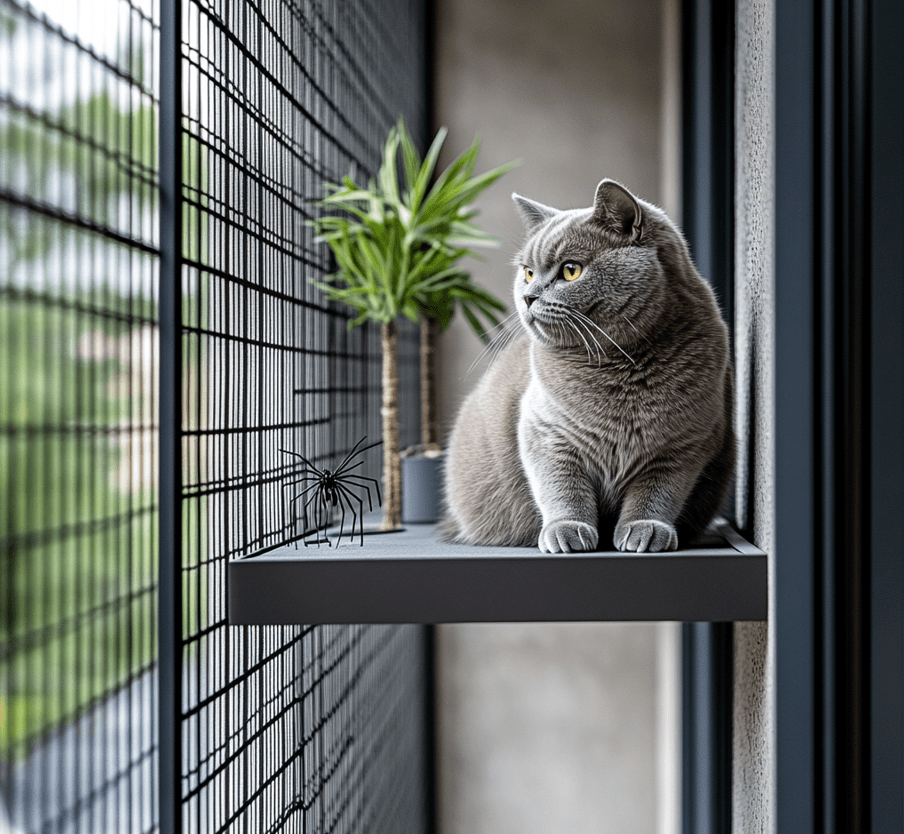
To prevent obesity in British Shorthairs, choosing the right diet is a powerful tool. Focus on high-protein, low-carb foods, control portions, and incorporate exercise to keep your cat at a healthy weight. By understanding your British Shorthair’s nutritional needs, reading labels carefully, and working with your veterinarian, you can ensure your cat enjoys a long, active, and healthy life. Start implementing these strategies today to give your British Shorthair the gift of vitality and well-being.

